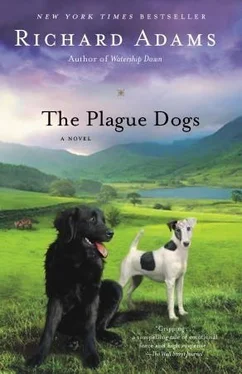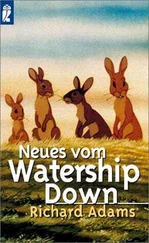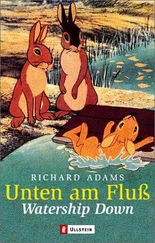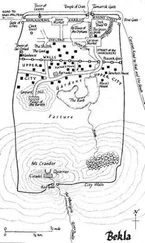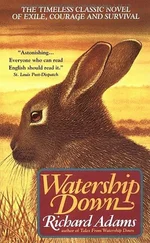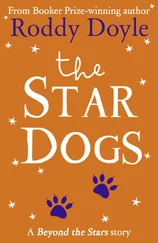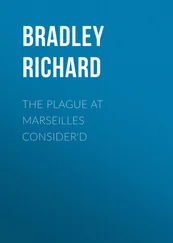Richard Adams - The Plague Dogs
Здесь есть возможность читать онлайн «Richard Adams - The Plague Dogs» весь текст электронной книги совершенно бесплатно (целиком полную версию без сокращений). В некоторых случаях можно слушать аудио, скачать через торрент в формате fb2 и присутствует краткое содержание. Город: New York, Год выпуска: 2007, ISBN: 2007, Издательство: Ballantine Books, Жанр: Природа и животные, Фэнтези, на английском языке. Описание произведения, (предисловие) а так же отзывы посетителей доступны на портале библиотеки ЛибКат.
- Название:The Plague Dogs
- Автор:
- Издательство:Ballantine Books
- Жанр:
- Год:2007
- Город:New York
- ISBN:978-0-345-49402-3
- Рейтинг книги:3 / 5. Голосов: 1
-
Избранное:Добавить в избранное
- Отзывы:
-
Ваша оценка:
- 60
- 1
- 2
- 3
- 4
- 5
The Plague Dogs: краткое содержание, описание и аннотация
Предлагаем к чтению аннотацию, описание, краткое содержание или предисловие (зависит от того, что написал сам автор книги «The Plague Dogs»). Если вы не нашли необходимую информацию о книге — напишите в комментариях, мы постараемся отыскать её.
, Richard Adams creates a lyrical and engrossing tale, a remarkable journey into the hearts and minds of two canine heroes, Snitter and Rowf, fugitives from the horrors of an animal research center who escape into the isolation—and terror—of the wilderness.
The Plague Dogs — читать онлайн бесплатно полную книгу (весь текст) целиком
Ниже представлен текст книги, разбитый по страницам. Система сохранения места последней прочитанной страницы, позволяет с удобством читать онлайн бесплатно книгу «The Plague Dogs», без необходимости каждый раз заново искать на чём Вы остановились. Поставьте закладку, и сможете в любой момент перейти на страницу, на которой закончили чтение.
Интервал:
Закладка:
Tyson felt irritated. The oversight was of no importance, but he was as close to being in a hurry as was possible for one of his temperament and besides, he did not like seven-three-two, which had more than once tried to attack him. He had in fact suggested that it ought to be chained to its kennel, but the matter had been forgotten by the staff member he had spoken to (who did not, of course, have to enter the dogs’ pens and in any case had no direct concern with seven-three-two) and no chain had as yet been supplied. “Ah’m noan gettin’ chain mesen, tha knaws,” Tyson had said on the second occasion when he mentioned it; “any rooad, sooner they drown you bluidy thing t’ better.” And thereafter he had simply carried a stout stick whenever he had to enter seven-three-two’s pen. Now, however, he could not be bothered to go and fetch the stick from over by the tap. Picking up the packet, he placed it flat on his hand, unwrapped it, strode down the cage-line to the far end, opened the pen door, and had just tossed the whole thing inside when a voice from outside called,” ‘Any?”
Tyson raised his head. “Ay?”
“Didst tha say tha wanted lift int’ Coniston? Ah’m joost off.”
“Ay, aw reet.” He stepped back from the pen, turned and came to the side door of the block, wiping his hands on his trousers. “Packet ’ere t’and back in—dog were dead. Else for that Ah’m doon.”
“Coom on then, owd lad. I’ll roon thee round by issuer’s place, and then we’re off.”
The voices receded, and then the sound of the car engine. The returning silence gleamed gently with noises, as a night sky with stars. A drop of water fell from the tap. An owl hooted once—twice, in the oak copse five hundred yards away. The clanging thud of a body against the side of a pen was followed by diminishing vibrations of the not-quite-taut wire. Straw rustled. A mouse scuttered along the concrete, in and out of the drainage gully, pausing and listening. The wind had veered into the west and there was a distant rustle of fine rain blowing in from the Irish Sea. The sick retriever, his food untouched, muttered and stirred in his sleep.
Snitter, alert and continually moving his head under its canvas cap, could discern other, still slighter sounds—the trickling of the beck, a larch cone falling branch by branch to the ground, movements in the fern and roosting birds stirring on their boughs. After some time the rising moon began to shine through the glass of the eastern hoppers, its beams slanting first upwards to the exposed king-post roof trusses and then, as they moved transversely downwards and across, falling at length upon the nearer pens. An Alsatian began to bay the moon. Perhaps it felt it had rather be a Roman and contaminate its paws with base bribes, than such a dog. Snitter, becoming more restless, began padding up and down his pen, agile and watchful as a trout in a pool. Intuitively, he had become aware of something out of the ordinary, something commonplace but full of import, some small alteration to the familiar as slight but disturbing as the discovery of a stranger’s urine against one’s own garden fence. But what exactly could it be?
As the first beams of moonlight touched his pen he stood on his hind legs, resting his paws on the wire separating him from Rowf. Suddenly he tensed, staring and sniffing, and so remained for perhaps thirty or forty heartbeats; but nostrils, ears and eyes all continued to affirm nothing but what they had originally conveyed. First, he had perceived that the source of the tobacco smell left by Tyson’s fingers—that is to say, the door of Rowf’s pen—was in slight but unmistakable movement—stealing and giving odour, as it were. Next, his ears had caught the well-nigh inaudible, higher-than-bat’s-pitch squeaking of the concentric hinges as they pivoted a quarter of an inch back and forth in the draught. Lastly, he had made out the moonlight moving on the wire as it might on a spider’s web—a kind of irregular, minute sliding back and forth limited by the frail force of the draught that was causing the door itself to oscillate.
Snitter dropped on all fours and, after a pause to smell and listen specifically for any signs of human proximity outside the block, began scrabbling at the length of loose wire between the two pens. Soon he had pushed it high enough to get his head underneath. Points protruding from the border of the mesh pricked his shoulders and then his back, piercing here and there; but he ignored them, continuing to whine and go round and round with his head in the hole like a gimlet. Finally he succeeded in forcing his way through into Rowf’s pen with nothing worse to show than a thin but fairly deep scratch across his rump. Once inside, he pattered quickly across to the kennel.
“Rowf! Rowf, come back! The tobacco man’s left my head open! Let me explain—”
The next moment he was knocked flying as Rowf bounded out of the kennel and leapt towards the pen door. His jaws snapped at the wire, biting and worrying, and the catch which Tyson, when interrupted by his friend, had omitted to fasten properly, clicked open off the jamb. After a few moments Rowf fell back, blinking and staring like a dog awakened from a bad dream.
“What?” said Rowf. “The tobacco man? Not the whitecoats—it can’t be the whitecoats—it’s still dark, isn’t it? It’s not time for the tank yet! I’ll fight—I’ll tear them—” He stopped and looked at Snitter in surprise. “What are you doing here, Snitter?”
“Heave-ho, the loose wire. You know, there was an old lady two gardens away who had a trap-hole made for her cats at night. In and out they went, in and out; but if ever they came into my garden, what-ho!”
“You’re bleeding!”
“Rowf, the moonlight, the door, I’ve come to tell you, it’s come loose on my head. The tobacco man forgot that it’s not. How can I explain? The door’s not a wall any more! Oh, my head aches!” Snitter sat on his haunches and began scratching and grabbing with one paw at the canvas cap, which remained, as it was intended to, resistant to his claws. In the moonlight Rowf looked at him grimly, but said nothing.
“My head!” muttered Snitter. “The tobacco man lit it with his matches. Can you smell it burning?”
“When did he?”
“I was asleep. The whitecoats put me on a glass table and I went to sleep. How the flies go round today! It’s so hot, even in the garden. I think I’ll go to sleep. If the lorry comes, Rowf—” He yawned and lay down on the floor.
Rowf got up and began to sniff at Snitter and lick his face. The effect was apparently something like that of smelling salts, the odour of his friend recalling Snitter to reality.
“The wire swing!” said Snitter, sitting up suddenly. “The door, Rowf! That’s why I came! The door of your pen’s unfastened!”
The Alsatian had stopped howling and for some moments the only sound in the block was a sudden dripping from the tap, plangent on the convex edge of the overturned bucket beneath it.
“We can go through it, Rowf!”
“What for?”
“Rowf, we might be able to get out of here!”
“They’d only bring us back. Dogs are supposed to do what men want—I’ve never had a master, but I know that.”
“The suffering, Rowf, the misery you’ve endured—”
“As dogs we’re born to suffering. It’s a bad world for animals—”
“Rowf, you owe them nothing—nothing—they’re not masters—”
“Canine nature—the whole duty of Dog—”
“Oh shit in the sky, give me patience!” cried Snitter in agony. “There’s a dog with a red-hot nose sniffing me over! The lorry’s coming, the lorry’s coming!” He staggered, and fell on the straw, but picked himself up at once. “Rowf, we’re going to escape! Both of us—through that door—”
Читать дальшеИнтервал:
Закладка:
Похожие книги на «The Plague Dogs»
Представляем Вашему вниманию похожие книги на «The Plague Dogs» списком для выбора. Мы отобрали схожую по названию и смыслу литературу в надежде предоставить читателям больше вариантов отыскать новые, интересные, ещё непрочитанные произведения.
Обсуждение, отзывы о книге «The Plague Dogs» и просто собственные мнения читателей. Оставьте ваши комментарии, напишите, что Вы думаете о произведении, его смысле или главных героях. Укажите что конкретно понравилось, а что нет, и почему Вы так считаете.
